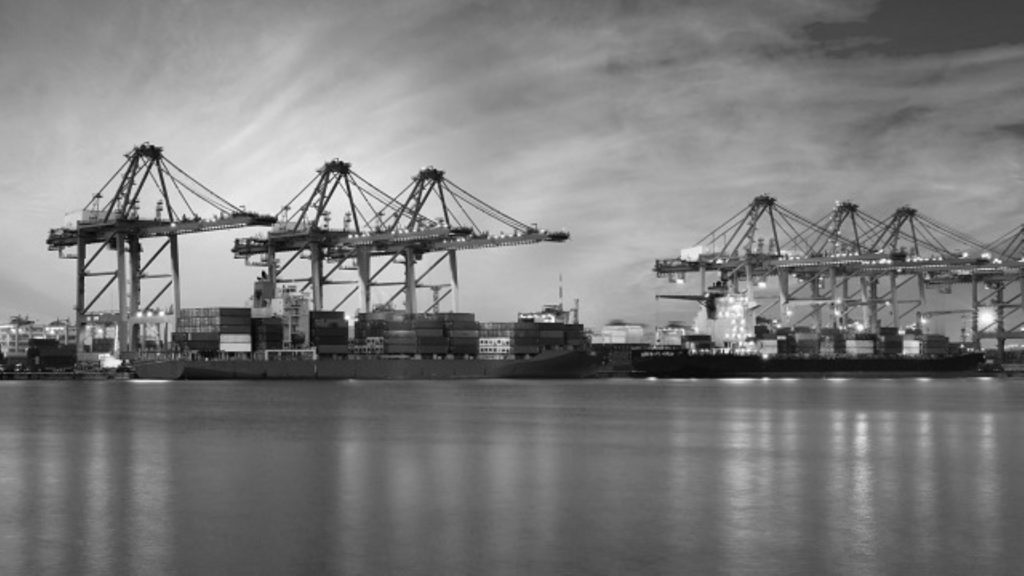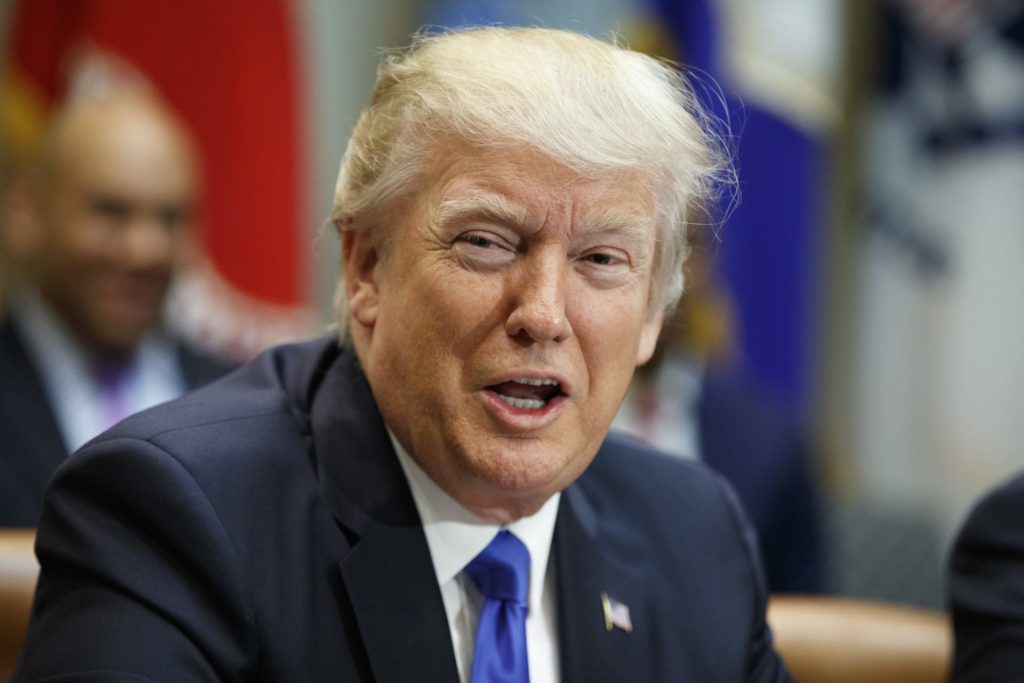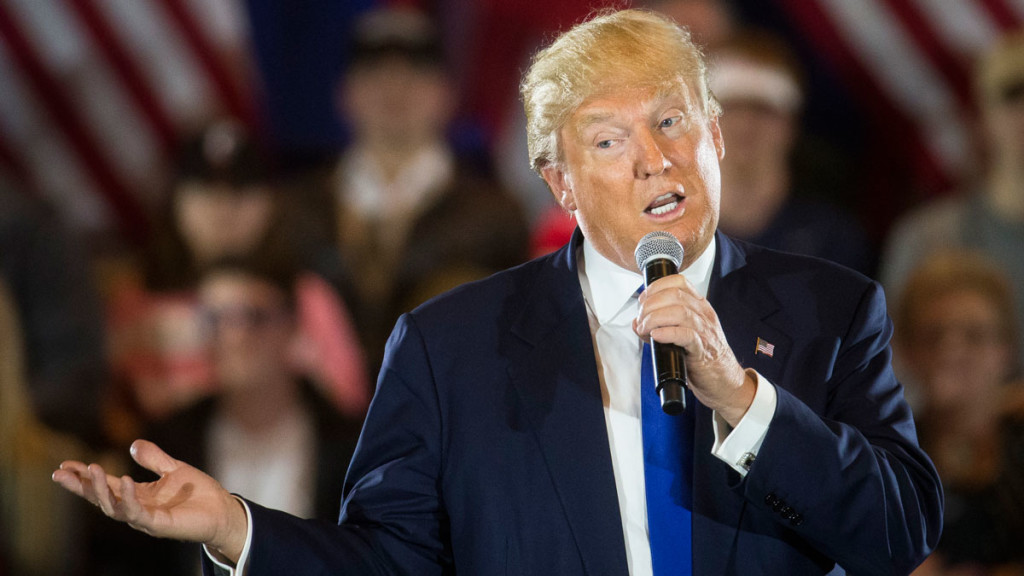Quilts of Valor designed to give comfort to Vietnam Veterans

Two local Vietnam veterans were recently presented with their own Quilts of Valor, honoring them for their military service. The two men, Raymond Paul Phillips and John McKiven, have been best friends since they met in Vietnam. Phillips served in the U.S. Marine Corps after training in 1966 at Parris Island, South Carolina. He spent time in Puerto Rico, Vietnam, and Okinawa during his service. He received six ribbons, including two Purple Hearts, the Vietnam Medal of Honor and the Good Conduct Medal. McKiven completed Marine basic training in 1968, at Camp Lejeune, North Carolina. He also spent a week in Twentynine Palms, California, where he learned to shoot a 50-caliber machine gun. He was awarded the National Defense Service Medal, Vietnam Service Medal, Vietnamese Cross of Gallantry with Palm, Vietnamese Campaign Medal and the Rifle Marksman Badge. When McKiven arrived in Vietnam, Phillips was the first Alabamian he met, sparking their friendship. McKiven showed him a photograph of his first cousin, Nancy Faye McKiven, and Phillips began writing her. Phillips returned home before McKiven finished his service, and by the time both men were home, Phillips was spending more time in Southside with Nancy than he was at home in Clio. Phillips married Nancy, making him and McKiven relatives as well as friends. The Phillipses had a long marriage until she died last September. Phillips then moved to Gadsden to live closer to McKiven and family. The quilt presentation was held at McKiven’s home, and friends, family and other veterans were in attendance. Lynn Hales, district coordinator for Northeast Alabama for Quilts of Valor, presented the quilts along with Sue Biggard, her assistant. “It shook me up that they gave us those,” McKiven said. “There’s not many people who’ve done stuff for the Vietnam veterans.” He said he felt the same way when Hales originally called him to discuss the presentation. Many Vietnam veterans were not thanked upon their arrival home, Hales said. Some quilt presentations mark the first time that’s happened. The Quilts of Valor Foundation is a nonprofit group that aims to honor, comfort, and cover veterans and service members with handmade quilts. Catherine Roberts started the foundation in 2003, during her son’s deployment in Iraq after she dreamed of a veteran sitting on the edge of his bed, surrounded by war demons. In the next scene in her dream, she envisioned that veteran sitting with a quilt wrapped around his shoulders, which blocked out the demons. The veteran’s demeanor had changed from one of despair to one of hope. The dream led Roberts to organize the foundation in her home in Delaware, before expanding it into what it is today — a widespread entity that awards quilts to veterans and service members all over the nation. More than 159,000 have been presented to date. The quilts are not simply passed out to men and women who served their country; they are awarded in a special ceremony as a symbol of public thanks. Each quilt is different, but all are used to say “thanks” and provide comfort to the recipients. Some have notes from the people who made them by hand; others have specialized colors for the recipient’s branch of service. Hales said each ceremony also is different, but the responses from the veterans and servicemen are heartwarming. A member of Lakeside Quilters, a quilting club in Guntersville, she said she learned about Quilts of Valor when the club began making quilts to be presented to servicemen and women. When the district coordinator role became available, Hales took on the position and has held it for nearly a year. Since then, she has presented quilts to veterans all across Northeast Alabama. Lakeside Quilters made the quilts for McKiven and Phillips. Hales said presenting quilts always warms her heart. “It’s so reminiscent of the men I was raised with who were willing to give and serve,” she said, noting that she had several family members who served in the military. Hales said the reactions from those receiving the quilts is always great. “You know, they’re military men. They’ve been trained to stand straight, show no emotion and do their work,” she said. Still, the response sometimes is more emotional. Hales said veterans who have received quilts have come back later to let her know how much of an impact the presentation had on them and their families. When presented with the quilts and thanked for their service, recipients are always appreciative of the quilt and the recognition. Sometimes, their response is more emotional. She said veterans who have received quilts have returned later to let her know how much of an effect the quilt had them and their families. Veterans can be nominated by anyone, or can nominate themselves. The quilts are made by quilters clubs or volunteers, using donated materials or those purchased through fundraisers. Republished with permission of The Associated Press.
Alabama exports surging in unexpected corners of the world

It’s clear that 2016 was a stellar year for Alabama exports, with rising shipments in a number of markets worldwide, signaling even more optimism for the future. The top five destinations for state goods and services – Canada, China, Germany, Mexico and the United Kingdom – remained relatively unchanged from 2015 and most showed year-over-year growth. Overall, Alabama-made goods were shipped to 189 countries. A number of them, while not among the top five, showed significant growth in 2016, including Kuwait, Russia, Taiwan and the United Arab Emirates. The Alabama Department of Commerce is always studying trade trends among state businesses and manufacturers, using the information to plan seminars and trips aimed at helping companies boost their export business, said Hilda Lockhart, director of Commerce’s Office of International Trade. Economic engine With Alabama’s 2016 exports reaching a record $20.55 billion, increasing 6.4 percent from the previous year, officials are looking to build on that momentum, Lockhart said. “We know rising exports for Alabama companies in overseas markets means greater potential for new jobs and investment back home,” Lockhart said. “International trade is truly a local economic engine, and Alabama workers and communities benefit from the growth.” U.S. Commerce Department figures show the state’s exports have risen 15 percent since 2011 and 48 percent since 2006. Vehicles are the state’s top export, by a large margin. Other key categories include chemicals, primary metals, paper products and non-electrical machinery, a category that includes combustion engines, agricultural machinery, metalworking machine tools and much more. Lockhart offered a closer look at some of the fastest-growing markets for Alabama exports, and what’s driving them: KUWAIT: Alabama’s exports to the Persian Gulf country increased to $104.9 million in 2016, a 285 percent spike from the previous year. The largest increases were in fabricated metal products, chemicals and paper. “This year Alabama was Kuwait’s No. 1 trading partner in the nation for fabricated metal products, perhaps due to the country’s recent expenditures on various hydrocarbon and petrochemical refineries, such as the $10 billion Olefins 3 plant,” Lockhart said. Currently in the pre-execution phase, the Olefins 3 plant will produce 1.4 million tons of ethylene a year when it is completed. The petrochemical is commonly used in the manufacturing process. RUSSIA: Shipments of state exports to Russia rebounded in 2016 to $102.1 million, after a poor showing the previous year, with major increases in the export of non-electrical machinery, chemicals and paper. Alabama was Russia’s No. 5 trading partner among U.S. states for non-electrical machinery products.Russia’s demand for machinery is “driven by the government’s strategy to modernize Russian industry across several sectors, including power generation, transportation, defense, automotive and aerospace,” according to the U.S. Foreign Commercial Service. Lockhart said the drop in exports in 2015 likely occurred because of the contraction in the price of oil that year, which caused a recession in Russia and other oil-producing countries. TAIWAN: Exports from Alabama to Taiwan nearly doubled in 2016, increasing to approximately $200 million. The largest gains were in chemicals, computer and electronic products, and paper. “Chemical exports alone accounted for more than half of the 2016 total, showing a two-year increase from $19.6 million in 2014 to $102.7 million in 2016,” Lockhart said. The state was Taiwan’s No. 6 trading partner in the nation for chemicals, predominantly in the category of basic chemicals, which include industrial gases used in the semiconductor production process. Lockhart said the semiconductor industry, including manufacturing, design and packaging, is a cornerstone of the Taiwanese IT economy, so it is likely that the increased exports are feeding into this sector. UAE: Alabama firms shipped $467.8 million in exports to the United Arab Emirates in 2016, an increase of more than 100 percent compared to exports just two years earlier. Much of the growth took place in the categories of transportation equipment, non-electrical machinery and chemicals. The state was the UAE’s No. 5 trading partner in the U.S. for transportation equipment, with this category alone accounting for $396.2 million of the export total for the year. “Aerospace products make up the bulk of these transportation equipment exports as the UAE develops its burgeoning satellite and Mars mission programs, expands its military and increases investment in the commercial airline industry,” Lockhart said. Meanwhile, other up and coming markets have shown significant growth over the past five years, and they could be potential targets of new, increased efforts to fuel trade, Lockhart said. The countries include Vietnam, Oman, the Bahamas, Denmark, Finland, Kenya, Liberia, Hungary and Bosnia-Herzegovina. This story originally appeared on the Alabama Department of Commerce’s Made in Alabama website. Republished with permission of Alabama NewsCenter.
Donald Trump nominee decried criticism of judges, senators agree

President Donald Trump insisted Thursday that comments by his Supreme Court nominee criticizing his own attacks on the judiciary were “misrepresented,” even as Republican and Democratic lawmakers vouched for the veracity of the remarks. Trump responded after private rebukes from Judge Neil Gorsuch, who said in meetings with lawmakers on Wednesday that the president’s comments about federal judges were “disheartening.” Gorsuch, who was nominated by Trump last week to the nation’s highest court, made the comments in meetings with senators after Trump accused an appeals court panel considering his immigration and refugee executive order of being “so political.” Over the weekend, he labeled a judge who ruled on his executive order a “so-called judge” and referred to the ruling as “ridiculous.” Democratic Sen. Richard Blumenthal of Connecticut first relayed Gorsuch’s remarks on Wednesday following a meeting with him. Trump’s own confirmation team for Gorsuch later confirmed he had made the remarks. But Trump said during a Thursday luncheon with senators that Blumenthal had misrepresented Gorsuch. “His comments were misrepresented. And what you should do is ask Senator Blumenthal about his Vietnam record that didn’t exist after years of saying it did,” he said. Blumenthal, who served in the Marine Corps Reserves during Vietnam, apologized in 2010 for saying he had served in Vietnam. The president made the comments while making the case for Gorsuch during a luncheon with 10 senators, including six of Blumenthal’s fellow Democrats. Blumenthal, a former state attorney general, argued Thursday that Gorsuch would need to go further to publicly denounce Trump’s verbal assault on judicial independence. “He needs to condemn Donald Trump’s attacks publicly and it needs to be much stronger, more explicit and direct than has been done so far,” Blumenthal said. “Unless it is done publicly in a clear condemnation, it will not establish his independence.” Lawmakers from both parties quickly vouched for the veracity of the remarks the senator said Gorsuch made. GOP former Sen. Kelly Ayotte, who is helping with Gorsuch’s confirmation and was at the meeting, issued a statement saying Gorsuch made clear he was not referring to any specific case. But she said the nominee said he finds any criticism of a judge’s integrity and independence to be “disheartening and demoralizing.” Senate Minority Leader Chuck Schumer, D-N.Y., and Sen. Ben Sasse, R-Neb., each confirmed that Gorsuch made the same comments to them. Sasse told MSNBC’s “Morning Joe,” ”Frankly, he got pretty passionate about it.” He added that Gorsuch said any attack on the “‘brothers or sisters of the robe is an attack on all judges’.” Fellow Connecticut Democratic Sen. Chris Murphy came to Blumenthal’s defense Thursday, lashing out in a tweet directed at Trump: “Ha! As a prosecutor, Dick used to put guys like u in jail. Now, u use your position to mock vets, he uses his to make their lives better.” Gorsuch’s comments came at the end of a week of meetings with members of the Senate, which is considering his nomination. His response may have been aimed at drawing a line of separation with the new president. The 9th U.S. Circuit Court of Appeals is weighing the appeal of Trump’s executive order on immigration, which included a temporary travel ban on people from seven Muslim-majority countries. In a hearing Tuesday, judges on the appeals court challenged the administration’s claim that the ban was motivated by terrorism fears, but they also questioned an attorney’s argument that it unconstitutionally targeted Muslims. Trump told visiting police chiefs Wednesday that a portion of the immigration law gives him the power to enact the ban, calling it “beautifully written” and saying, “A bad high school student would understand this.” “Courts seem to be so political and it would be so great for our justice system if they would be able to read a statement and do what’s right,” Trump added. “And that has to do with the security of our country, which is so important.” Since a lower-court judge blocked the order last week, Trump has assailed the decision, leading legal experts, Democrats and some Republicans to question whether his remarks might jeopardize the independence of the judiciary. Others have expressed fears he may be attempting to use political influence to sway the courts. The president has repeatedly said foreigners are “pouring in” since the ban was put on hold and suggested that blocking the order would be dangerous for U.S. citizens. On Wednesday he tweeted, “Big increase in traffic into our country from certain areas, while our people are far more vulnerable, as we wait for what should be EASY D!” The administration has not provided any information to support his claims. Republished with permission of The Associated Press.
World jittery about Donald Trump’s ‘America first’ inaugural speech

President Donald Trump‘s inaugural speech promised “America first” policy led by a forceful executive, in contrast to the coalition building and international conferences which have featured strongly in past administrations. The billionaire businessman and reality television star — the first president who had never held political office or high military rank — promised to stir a “new national pride” and protect America from the “ravages” of countries he says have stolen U.S. jobs. “This American carnage stops right here,” Trump declared. In a warning to the world, he said, “From this day forward, a new vision will govern our land. From this moment on, it’s going to be America first.” A look at some reactions from around the world: ___ AFGHANS DISAPPOINTED BUT HOPEFUL Like many in the Afghan capital of Kabul, restaurant owner Mohammad Nahim watched the presidential inauguration ceremonies but was disappointed to not hear any mention of Afghanistan. “Trump did not mention a word about Afghanistan in his speech and the salaries of the Afghan army and police are paid by the U.S.,” he said. He added that if the U.S. stops helping Afghanistan, “our country will again become a sanctuary to terrorists. I hope Trump will not forget Afghanistan.” Mohammed Kasim Zazi, a shopkeeper whose home is in eastern Afghanistan’s Khost province, where the feared Haqqani network is prominent, said he expected Trump to stay focused on Afghanistan. “Trump said he will finish the terrorists in the world and that has to mean that Afghanistan will remain in the sights of the U.S.” said Zazi. Chief Executive Abdullah Abdullah said he was encouraged by Trump’s speech to soldiers in Bagram. “There he announced his support to the troops and the continuation of support for their troops here and strengthening their troops, which is a good and elegant step and I am sure that our cooperation in other areas will continue as well.” ___ SPEECH RESONATES IN MEXICO Perhaps no country was watching the speech more closely than Mexico. Trump has made disparaging remarks about immigrants who come to the United States illegally and sought to pressure companies not to set up shop in Mexico by threatening a border tariff on goods manufactured there and exported to the United States. So Trump’s talk of “protect(ing) our borders,” ”America first” and “buy American and hire American” had particular resonance in America’s southern neighbor. Ricardo Anaya Cortes, president of the conservative opposition National Action Party, called for “the unity of all Mexicans, unity in the face of this protectionist, demagogic and protectionist speech we just heard. Unity against that useless wall, against deportations, against the blockade of investment.” “The challenge is enormous. … We demand the federal government leave aside tepidity, that it tackle with absolute firmness and dignity the new relationship with the United States,” Anaya said. The United States is by far Mexico’s largest commercial partner, buying some 80 percent of its $532 billion in exports in 2015. Mexico is the second-largest market for U.S. exports. “At least the word ‘Mexico’ was not heard in the speech. Nevertheless one can expect the United States to launch a hyper-protectionist project,” said Ilan Semo Groman, a researcher at Iberoamericana University. If Trump truly moves to block or drive away U.S. investment in Mexico, Semo said Mexico should focus its commercial efforts on other countries. “There are very clear possibilities,” Semo said. Mexican President Enrique Pena Nieto sent three tweets after Trump’s inaugural speech Friday: — “I congratulate @realDonaldTrump on his inauguration. We will work to strengthen our relationship with shared responsibility.” — “We will establish a respectful dialogue with the government of President @realDonaldTrump, to Mexico’s benefit.” — “Sovereignty, national interest and the protection of Mexicans will guide the relationship with the new government of the United States.” ___ PAKISTAN WORRIES ABOUT MUSLIM COMMENTS A group of retired government officials gathered after morning prayers for a walk in a sprawling park in the heart of the federal capital of Islamabad and the topic of their conversation was President Trump’s inaugural speech. They expressed concern that Trump would target the Islamic world, particularly Pakistan, because of his campaign rhetoric about Muslims as well as his inaugural speech in which he promised to eradicate Islamic terrorism worldwide. Pakistan has often been accused of harboring militant insurgents and declared terrorist groups that have targeted neighboring India, against whom Pakistan has fought three wars, as well as Afghanistan. Pakistan denies the charges. “Likely there is more trouble in store for the Islamic world and our country will take the most brunt of the harsh treatment from President Trump administration,” said Mohammad Afzal. His sentiments were echoed by Shafiq Khan, who said “the one main thing that the new president mentioned about the world outside America is to tackle Islamic radicalism and that should be the matter of concern for all of us.” Amanaullah, a school teacher in Islamabad, feared Trump’s reference to eliminating radical Islamic terrorism. “I think under this name he wants to malign and eliminate Islam,” he said. Umair Khan, an engineer, said of Trump: “Let him taste the burden of government and get settled, I am sure he will calm.” ___ CONCERN IN TOKYO Some Tokyo residents are worried that Trump’s “America first” policy will usher in an era of populism and protectionism at the expense of the rest of the world. Tadashi Gomibuchi, who works in the manufacturing industry, recorded Trump’s inauguration speech overnight as he was keen to hear what the new president had to say. “Trump is trying to make big changes to the way things are. Changes are good sometimes, but when America, the most powerful, loses stability … it’s a grave concern,” he said. “If you take his words literally, it may destabilize the world going forward and I’m really worried. I hope things will lead to a soft landing.” Retiree Kuninobu Inoue, who lived in the U.S. during the 1990s, is concerned about trade frictions between Japan and the U.S, citing Trump’s decision
Martin Dyckman: Donald Trump’s remarks about nuclear weapons are scary

Is it time to recycle the daisy ad? The most effective political spot ever filmed begins with a precious little girl pulling petals from a flower, counting them imperfectly. It segues to a man’s harsh voice counting down from 10. The child’s face dissolves into the hideous sight and sound of an H-bomb test. “These are the stakes,” says another voice — the familiar one of the president of the United States. “To make a world in which all of God’s children can live or to go into the darkness. We must either love each other or we must die.” “Vote for President Johnson on Nov. 3,” says an announcer. “The stakes are too high for you to stay home.” The ad did not mention Barry Goldwater, Johnson’s arch-conservative, hawkish Republican opponent, and it was pulled after running only once. But nearly everyone saw it in news replays, and it contributed enormously to LBJ’s landslide victory in November 1964. The message was that Goldwater shouldn’t be trusted with the nuclear codes. He had, in fact, suggested the use of low-yield nuclear weapons in Vietnam. Anyone old enough to have seen the ad will never forget it. For everyone else, it’s on YouTube. Search for “daisy ad.” There is now a candidate for president, presently leading the race for his party’s nomination, whose reckless talk about nuclear weapons makes Goldwater look rather like a peacenik. That candidate has suggested that South Korea and Japan should be encouraged to develop their own nuclear arsenals so as to shoulder a greater load of their own defense, which is now guaranteed by the United States. “At some point, we cannot be the policeman of the world,” Donald Trump said. “And unfortunately, we have a nuclear world now … Now, wouldn’t you rather, in a certain sense, have Japan have nuclear weapons when North Korea has nuclear weapons?” No, we wouldn’t. And neither would Japan, which promptly cited its prudent policy of never possessing them. As for the two Koreas, what does Trump suppose that the North’s manic dictator Kim Jong Un would do with his nukes should he see or suspect South Korea actually undertaking to develop one? Trump is practically goading the tyrant to use one now. The problem, of course, is that Trump shoots from the lip, whether the subject is war, women, abortion, or anything else. As The Washington Post columnist Katherine Parker put it, “The man either can’t or won’t think before speaking.” Newt Gingrich, a supporter, acknowledged that Trump doesn’t see that “being president of the United States is a team sport that requires a stable personality that allows other people to help him.” That too many nations already have nuclear weapons hardly makes a case that others should. It means just the opposite. Nuclear nonproliferation is a long-standing, bipartisan policy that we share with all our allies as well as such less-friendly nations as Russia and China. It’s why we assembled a coalition to enforce the sanctions that pressured Iran into forsaking its own pursuit of a nuclear arsenal. “We don’t want somebody in the Oval Office who doesn’t recognize how important that is,” President Barack Obama said Friday at the close of a summit meeting on nuclear security. “Even those countries that are used to a carnival atmosphere in their own politics want sobriety and clarity when it comes to U.S. elections because they understand that the president of the United States needs to know what’s going on around the world,” the president said. The next president, heaven forbid, could be someone who not only doesn’t know but doesn’t seem to care that he doesn’t know. The only one thing worse than ignorance in politics is the willful stupidity of a candidate who assumes that his gut instincts are all the knowledge he needs. Trump’s interview with The Washington Post’s editorial board was so jaw-dropping that the newspaper posted the full transcript online. Click here to read it. Typical of his dissembling and evasion was his answer to a timely question about whether “it’s a problem that the percentage of blacks in prison is higher than whites, and what do you think is the root of that situation?” Trump wouldn’t say. Asked a second time, he still wouldn’t say. Asked directly whether he believes there are “disparities in law enforcement,” this is what he finally did say: “I’ve read where there are and I’ve read where there aren’t. I mean, I’ve read both. And, you know, I have no opinion on that.” On climate change: “Perhaps there’s a minor effect, but I’m not a big believer in man-made climate change … to me, the biggest risk is nuclear weapons.” And then he went out and dialed that risk up yet another notch. Ten, nine, eight, seven … *** Martin Dyckman is a retired associate editor of the St. Petersburg Times. He lives in suburban Asheville, North Carolina.
Ben Pollara: A Democrat’s unsolicited advice for the GOP that created Donald Trump

What is more appealing for Democrats like me? Donald Trump as the Republican nominee, or a fractured convention that produces a nominee who received no Republican primary votes, like Paul Ryan? Honestly, both sound pretty good and likely to culminate in a Hillary Clinton presidency. But it’s not up to Democrats like me, and the questions Republicans should be asking themselves have more serious consequences for both their party and our system of governance. Beyond my partisanship, I hold a core belief in the essential function of the two-party system and the imperfect, yet better than the alternatives, manner in which it maintains the values of our republican democracy. Assuming Trump enters Cleveland with a plurality but not majority of delegates, to deny him the nomination would shatter the Republican Party for a decade to come, and with it the two-party system that balances the most extreme tendencies of American political ideology. The media reacted with shock at Trump’s assertion that a brokered convention that denied him the nomination would lead to rioting. Trump has said many outrageous things, many of them without basis in fact. This was not one of them. Just as Vietnam and Civil Rights nearly tore apart the Democratic Party in 1968, denying Trump the nomination through Byzantine delegate rules would succeed in doing the same to the Grand Old Party. The party of Lincoln must come to terms with the reality that it now holds that moniker by historical fact only. The Republican Party has, by virtue of a political strategy to build a winning national coalition post-New Deal, become the party of Richard Nixon, Ronald Reagan, and yes, Donald Trump. To survive, Republicans must face down that which they have wrought through two generations of “dog whistle” racism and us-vs-them fearmongering that, until recently, served the cynical corporatists and political elites in the party quite well. The Southern Strategy and the rise of fundamentalist religious extremism paved the way for the K Street Project and 20 of 28 years of Republican White House occupancy; the Tea Party and Birtherism gave rise to the Koch-era and hegemony of the legislative branch in D.C. and most state capitols. But the craven decisions that led to these triumphs are causing the Republican Party to collapse under the weight of its own base. What fueled government shutdowns over previously benign issues like raising the debt ceiling and funding Planned Parenthood (and the ultimate ouster of John Boehner as Speaker of the House) is precisely what is fueling Donald Trump’s success. It is willful ignorance and intellectual dishonesty of the first degree for Republicans to bemoan the “Make American Great Again” movement and its accompanying rhetoric of angry xenophobia without owning responsibility for creating the environment that spawned it. You reap what you sow. Give Trump the nomination he has earned; you fostered the environment that incubated him. Let Trump fail spectacularly in November. Then look in the mirror and begin to rebuild the Republican Party in the image of Abraham Lincoln, rather than David Duke and his ilk. The alternative is a splintering of the very foundation of our political system and a generation of Democratic hegemony, which may have pundits in the not distant future bemoaning that “Barack Obama wouldn’t have been able to win a single state’s primary in today’s Democratic Party. He was basically a Republican.” Republicans should ask themselves, what is scarier? Four more years of a Democrat in the White House, or a future where that statement is true? • • • Ben Pollara is a political consultant and a founding partner of LSN Partners, a Miami Beach-based government and public affairs firm. He runs United for Care, the Florida medical marijuana campaign and is a self-described “hyper-partisan” Democrat.


